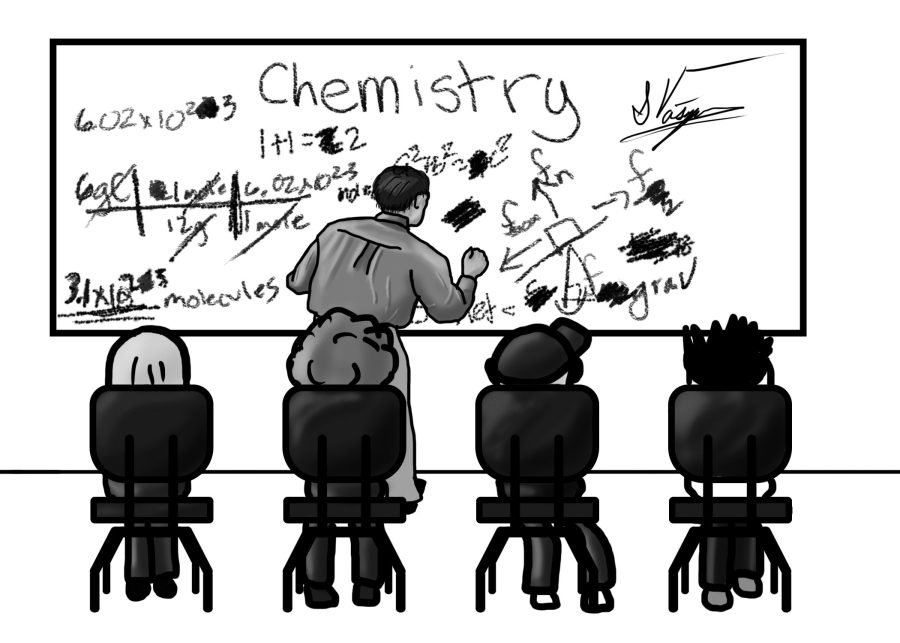Most teenagers have dealt with a disorderly and confusing teacher at least once in their high school career. This problem can be solved if teachers obtain recertification, which the California Teacher’s Association neglects to implement.
Each year, the departure of retired teachers and influx of new staff often leaves existing teachers scrambling to instruct classes they have not taught in years. In general, when students reflect on a particular class that they took over a year ago, they find it difficult to remember all the course material and curriculum. If a teacher has not taught a specific course in several years, how can the District determine that instructor’s competence to teach the subject’s material?
If teachers have not instructed a given course in several years, their ability to teach relevant material to students should be questioned. In the long run, it is crucial for administrators to provide students with an excellent high school education — one that serves as a stepping stone for the rigors of college coursework and life beyond the classroom.
A study conducted by Georgetown Public Policy Institute predicts that by 2020, 30 percent of job openings will require a college or associate’s degree, and 35 percent of job openings will require at least a bachelor’s degree. Particularly in Silicon Valley, parents are paying more for housing in hopes that their children will receive a top-notch public education experience.
To further ensure that students are given a proper education, high school teachers who have not taught a specific course for over three years should take a recertification test or a refresher course to ensure they are still proficient in the material they will be teaching.
According to the California Commission on Teacher Credentialing, teachers must renew their teaching certificates every five years. However, this only requires them to obtain a fingerprint clearance and complete an identification process, not a reverification of their current ability to teach. Indeed, many jobs insist their workers go through a recertification process after a designated period of time.
For example, The American Board of Physician Specialties (ABPS) requires that all physicians obtain recertification every eight years. The recertification standards of the APBS consist of completing a medical ethics program, taking 25 hours of Continuing Medical Education and passing a 100-question written assessment. Despite the fact that doctors stay in the same field for eight years, it is still obligatory for them to comply with these stringent standards. Meanwhile, teachers do not have to go through such a process no matter how many years they have been teaching for, even if they switch between courses.
Some Paly teachers have gone extended periods of time without teaching a particular class, which may cause them to stray from the mandated curriculum once they are reassigned to instruct the course. On the other hand, there are teachers at Paly who have not taught the class for several years and can still demonstrate proficient teaching skills.
The status quo is that teachers who have not taught a class for a number of years can still teach the class if they choose to or are assigned to it as long as they put in the extra effort. According to social studies teacher Adam Yonkers, teachers have the responsibility to review their class material over the summer.
“It’s on the individual teacher to be prepared,” Yonkers said. “Year to year, we are not guaranteed to always have the same courses, especially for elective teachers who are teaching classes that you may not know are going to be full or going to be changed. For me, if I were to change my assignment and have to teach another course, the preparation would be hopefully something I can do over the summer.”
If a teacher has not taught a specific course in several years, how can the District determine that instructor’s competence to teach the subject material?
Placing the responsibility on the teacher to cover course material over the summer may not be a chance that the school wants to take. In the eyes of many students, a good teacher constitutes one who presents clear and structured lessons with demonstrated mastery of the subject. Paly can ensure that teachers display such qualities with the enforcement of a new guideline that requires teachers who have not taught a given course for over three years to take a reassessment or refresher course.



